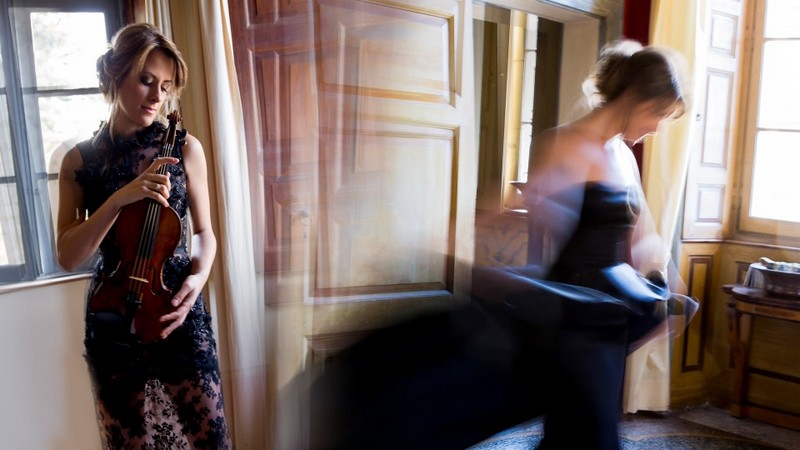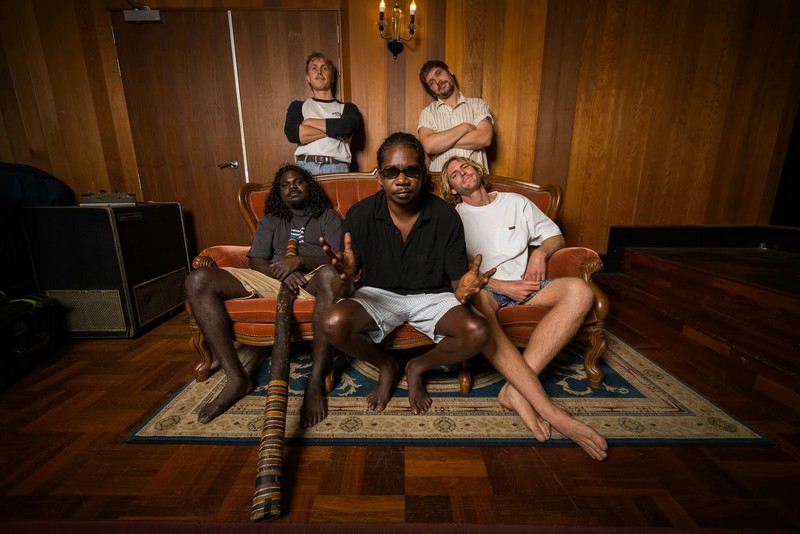Our selection of the best new music across a range of genres from the week ending 14 October 2022.
Following their critically acclaimed first volume of Mozart’s violin concertos, Francesca Dego and Sir Roger Norrington complete the set, once again with outstanding support from a reduced Royal Scottish National Orchestra. This cycle not only represents the first time Sir Roger has recorded these concertos, but the album is also his final recording project. All five concertos were written before Mozart was twenty; nevertheless, his rapid development as a composer is evident in the progression from the first to the fifth, which has an unusual Adagio section within the first movement, an extensive slow movement, and of course the extensive ‘Turkish’ episode in the final movement (probably based on Hungarian folk music). Whilst given on modern instruments with metal strings, these are performances immersed in Norrington’s lifetime of experience in period performance practice.
Sonically, there are a few things we got right in the 90’s–stompy rage fueled queer bands, hazy uber-pedaled guitar, poeticism to be yelled full-chested towards the windshields of our 2nd (or 3rd, or 4th) hand vehicles. More generally, there was also a lot we got wrong. Sarah Shook’s new solo project, Mightmare, finds a way to roll the sounds we couldn’t live without into a response to the things we couldn’t live with, confronting their habits and the rules they live by in the process. Loved for their work in Sarah Shook and the Disarmers, Shook’s Cruel Liars brings crispy clean, country twanged vocals to the table alongside the furiously urgent need to express themselves. The record marks the process of finding meaning in spaces outside of gender or drinking or protocol, and slingshots itself towards something both conceptually remarkable and a simply exhilarating, embodied knockout.
Skullcrusher is the alter ego of Helen Ballentine. Their spellbinding first full-length album Quiet the Room is the sound of a window opening, a barrier dissolving. Across fourteen tracks, the outside world seeps in and the inside world crawls out. The result is a stunning and quietly moving work that reflects the journeys we take through the physical and spiritual realms of ourselves in order to show up for the world.
What Kind of Blue Are You?, Winter’s sophomore release with Bar/None Records, is an emotional excavation of Samira Winter’s purest self. Musically, the LP’s 10 songs reconnect with the earliest incarnation of Winter, once again painting with brushstrokes of distorted guitar, but using them to fuel a wiser, more mature form of sonic liberation.
Dan Kurfirst is a percussionist/composer/educator based in Brooklyn who has worked with Adam Rudolph’s Go:Organic Orchestra, William Parker, Hamid Drake, to name a few. Dan also studied Middle Eastern and West African rhythms with the great Royal Hartigan. He has just released his first album as a leader called Arkinetics that features the great Daniel Carter and encapsulates his study of global rhythms, free improvisation, and engaging production. Think 70’s Miles Davis production, 70’s Herbie Hancock, with influences from hip hop producer J Dilla in the use of samples, in this case excerpts from lectures by philosopher Alan Watts.
Flowing water is an essential element of Earthly existence, a living force, a process of nature, a path-making which combines infinite sources mixing imperceptibly into a singular energy. It’s also a potent metaphor. A childlike wonder at flowing water’s presence and power, all the impressions it makes and creative neurons that it fires, happens to be a personality trait shared by Evan Shornstein (aka Photay) and Carlos Niño. The two producers/musical connectors may have grown up and reside a continent and daily realities apart — Photay in the forest serenity of New York’s Hudson Valley, Niño on Los Angeles’s ocean-adjacent west side — yet this magnetic power of fluidity, its sound, its meaning, what it can teach us about art and circulation, mesmerizes them both.
Isokratisses – Greek for “women who sing the iso” (or drone) – is a vocal ensemble of eight women who carry on the ancient tradition of polyphonic songs from Epirus, a region in northern Greece and southern Albania. Born and reared in the Greek-speaking villages around Deropoli and Politsani in Albania, the women of Isokratisses have sung these songs since childhood. The members of Isokratisses were nurtured by this archaic music, listening to and singing songs passed down from generation to generation with their family and friends. Cry With Tears: Greek-Albanian Songs of Many Voices celebrates the communal nature of polyphonic singing, reasserting the primacy of female voices in the southern Balkans while revitalizing the art. Isokratisses singing these songs builds an invisible bridge that connects the present with the past, memories of childhood merging with the immediacy of daily life.
Other reviews you might enjoy:
- New music round-up (for w/e 6 October 2023)
- New music round-up (for w/e 26 July 2024)
- New music round-up (for w/e 25 October 2024)

David Edwards is the editor of The Blurb and a contributor on film and television





